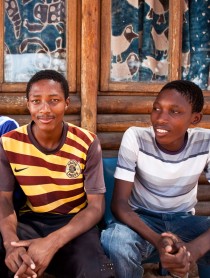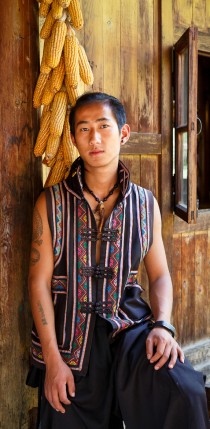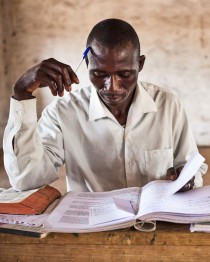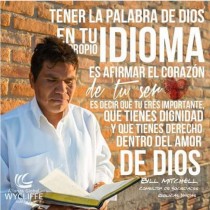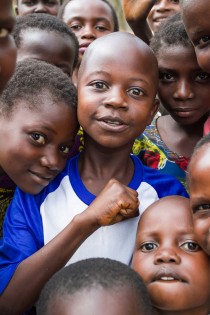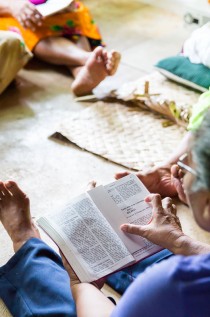News travels fast in an oral culture
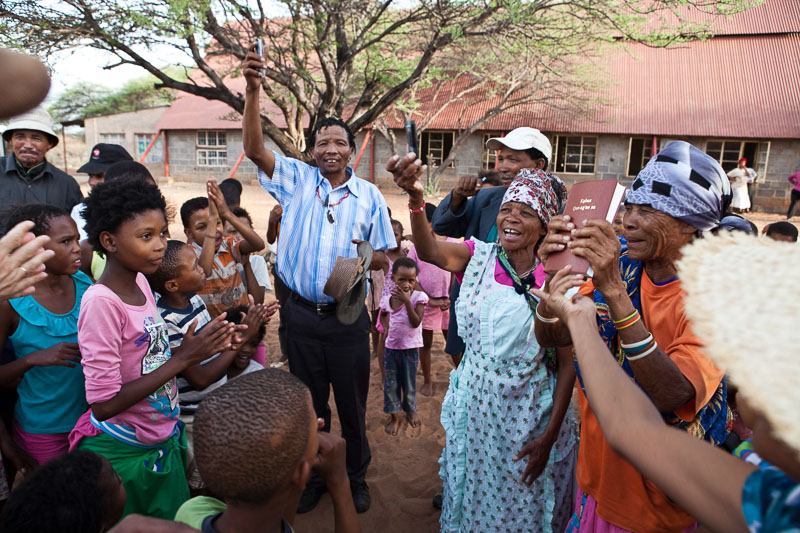 Bible storying taps into the lifeblood of an oral culture, and the stories travel surprisingly fast. Ethno-communications consultant Durk Meijer recalls a man he met at a Bible storying workshop from the Himba community in northwestern Namibia. “He was educated, spoke English and uses Facebook – he’s a modern guy. He learned four Bible stories immediately to retell.” When Durk used a different approach – teaching principles rather than stories – the man struggled to remember what he heard and retell it. Durk has observed this is a common challenge among oral learners. “We’re helping people…engage with God’s Word in their own way,” explains Durk. Technology is increasing this engagement even further. Southern Africans living in remote areas, including many San people, have embraced the mobile phone as a perfect method for doing what oral cultures love: sharing stories. Sebastian Floor, director of Wycliffe South Africa’s Regional Translation Services,reports that even without widespread access to electricity, people find a way to charge their phones. They also climb mountains or travel long distances to get a network signal. Such obstacles are no match for a desire to communicate. “It’s amazing!” exclaims Sebastian. “We are finding that stories done orally spread very quickly.” One way oral Bible storying differs from written translation is that less language analysis needs to be done at the outset. Bible stories can be prepared quickly and checked by a consultant right away. “Basically the [oral] translation work gets done at the story workshops,” Sebastian says. While oral storying is a startup strategy for Wycliffe South Africa’s Regional Translation Services (RTS), it isn’t necessarily a substitute for written translation. It often prepares a community for a full Bible translation project. “But the main advantage,” says Sebastian, “is that it gets God’s Word out to communities very quickly.”
By Elyse Patten Return to the article Stories and Brotherhood: Bible Translation in Southern Africa to read more.
|




